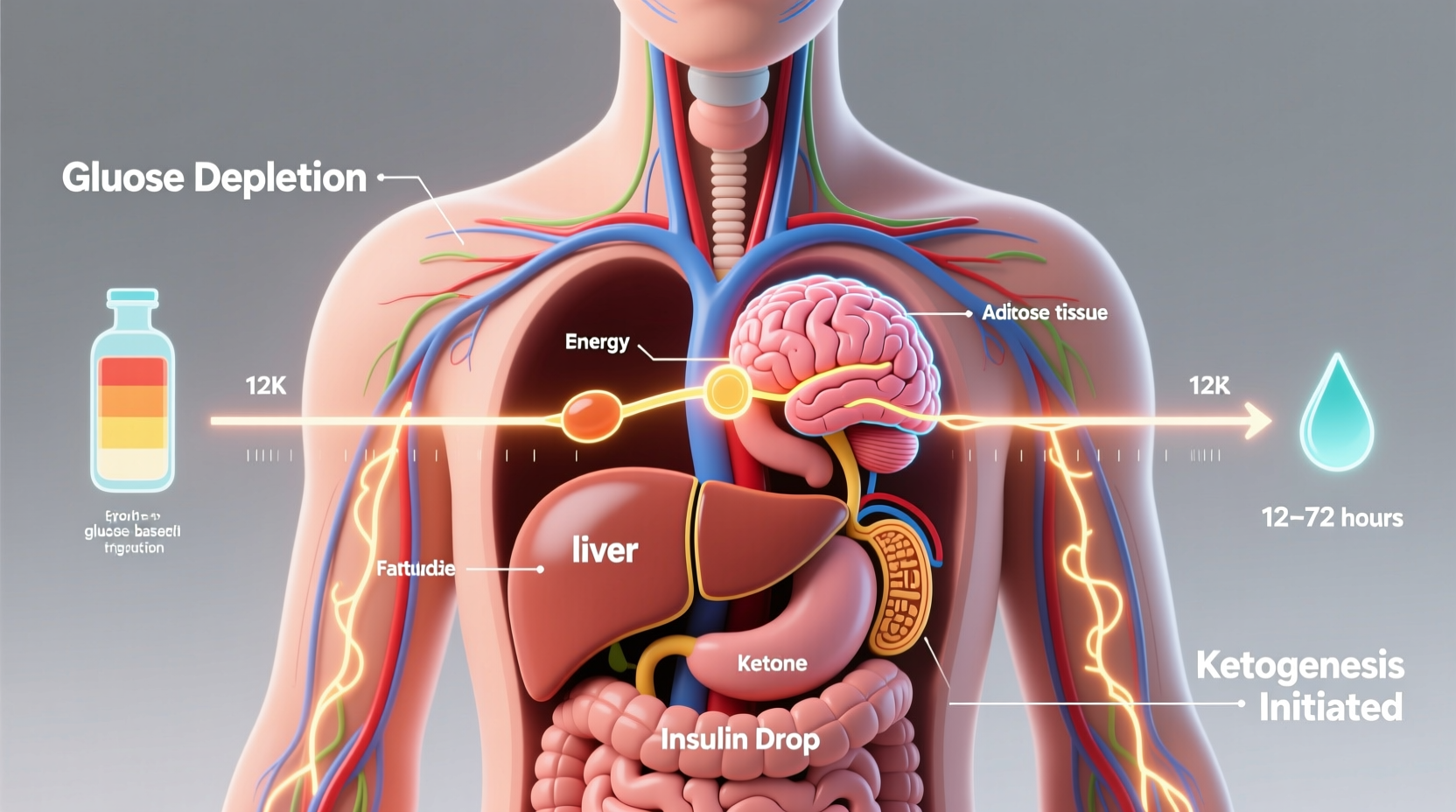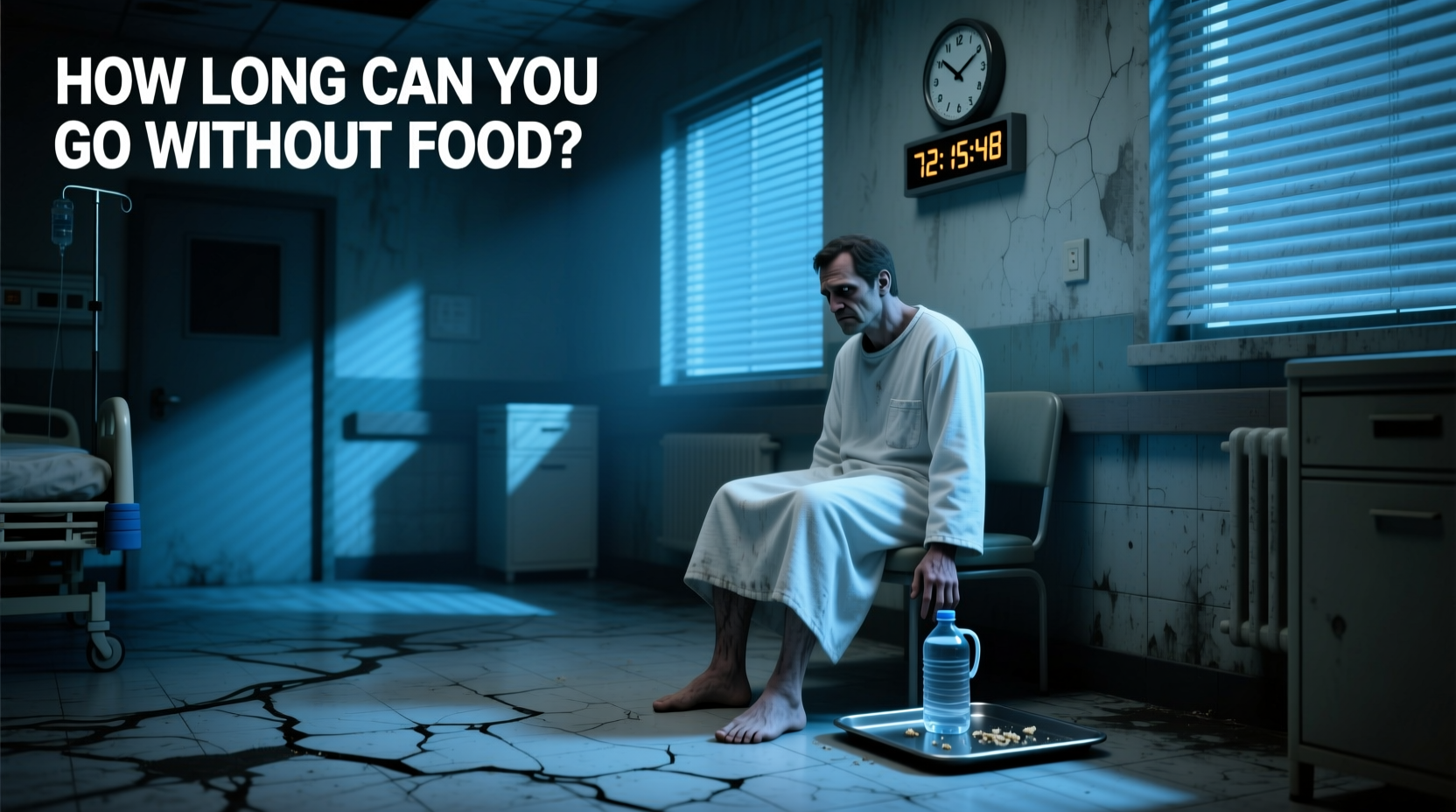Understanding human survival limits without food is crucial for emergency preparedness, medical contexts, and personal health decisions. This comprehensive guide examines the science behind fasting, starvation timelines, and critical warning signs that require immediate medical attention.
What Happens to Your Body During Food Deprivation
When you stop eating, your body undergoes a carefully orchestrated metabolic shift to maintain vital functions. The process follows a predictable pattern that medical professionals monitor closely in clinical settings. Within hours of your last meal, your body begins tapping into stored energy reserves through a process called glycogenolysis.
| Time Without Food | Primary Metabolic Process | Physical Effects |
|---|---|---|
| 0-24 hours | Glycogen breakdown | Mild hunger, initial blood sugar drop |
| 24-72 hours | Ketosis begins | Increased mental clarity, fatigue, headache |
| 3-7 days | Full ketosis | Reduced hunger, potential dizziness |
| 1-3 weeks | Protein breakdown | Muscle wasting, weakened immunity |
| 3+ weeks | Organ function decline | Severe complications, organ failure |
This metabolic timeline comes from research published in the American Journal of Clinical Nutrition and represents average responses in healthy adults. Individual variations occur based on multiple factors that we'll explore next.
Key Factors Influencing Survival Time Without Food
Your personal survival window depends on several critical variables that can significantly extend or shorten the typical 3-8 week range. Understanding these context boundaries helps explain why two people in similar situations might experience vastly different outcomes.
Body Composition Matters Most
Body fat percentage serves as your primary energy reserve during starvation. According to the National Center for Health Statistics, individuals with higher body fat percentages can survive longer without food because adipose tissue provides substantial caloric reserves. A person with 20% body fat might survive twice as long as someone with 5% body fat under identical conditions.
Hydration Status Is Critical
Water intake dramatically affects survival time. While you might last weeks without food, dehydration becomes life-threatening within days. The World Health Organization emphasizes that without adequate water, metabolic processes essential for survival collapse rapidly. Even with minimal food intake, proper hydration extends survival time significantly.
Environmental Conditions Play Key Role
Temperature extremes accelerate energy depletion. Cold environments increase caloric needs by up to 40% as your body works harder to maintain core temperature. The Centers for Disease Control notes that hypothermia can develop rapidly during food deprivation, further reducing survival time in cold conditions.

When Fasting Becomes Dangerous: Warning Signs
Therapeutic fasting differs significantly from dangerous starvation. Recognizing these critical warning signs can prevent irreversible damage:
- Persistent dizziness or fainting - Indicates dangerously low blood pressure
- Severe muscle weakness - Signals protein breakdown exceeding safe levels
- Irregular heartbeat - Potentially life-threatening electrolyte imbalance
- Confusion or disorientation - Sign of severe metabolic disruption
- Dark urine with minimal output - Indicates dehydration and kidney stress
Medical professionals at Mayo Clinic emphasize that if you experience three or more of these symptoms simultaneously, immediate medical attention is required. These warning signs represent the body's transition from controlled fasting to dangerous starvation.
Therapeutic Fasting vs. Dangerous Starvation
Many people confuse medically supervised intermittent fasting with dangerous prolonged starvation. Research from Nature Medicine shows that short-term fasting (up to 72 hours) can have health benefits when properly managed, including improved insulin sensitivity and cellular repair processes.
However, extended food deprivation beyond medical supervision crosses into dangerous territory. The critical distinction lies in intentionality, medical oversight, and duration. Therapeutic fasting protocols always include:
- Clear time limits (typically 24-72 hours)
- Continuous hydration with electrolyte monitoring
- Medical supervision for at-risk individuals
- Gradual refeeding protocols to prevent refeeding syndrome
When to Seek Immediate Medical Help
Certain situations require urgent medical intervention regardless of how long someone has gone without food:
- Individuals with diabetes experiencing food deprivation
- Children or elderly persons showing signs of weakness
- Anyone with pre-existing heart conditions
- People showing symptoms of refeeding syndrome after eating
- Individuals who have gone more than 5 days without any caloric intake
The American Heart Association warns that refeeding syndrome—a potentially fatal condition caused by rapid reintroduction of food after starvation—requires professional medical management. Symptoms include difficulty breathing, heart rhythm abnormalities, and seizures.
Practical Guidance for Different Scenarios
Understanding your specific situation helps determine appropriate action:
Emergency Preparedness
If preparing for potential food shortages, maintain at least a 72-hour water supply and focus on high-calorie, non-perishable foods. The Federal Emergency Management Agency (FEMA) recommends storing one gallon of water per person per day.
Medical Fasting
When doctors recommend fasting for procedures or health reasons, follow their specific instructions precisely. Never extend medically supervised fasting without professional guidance.
Unintentional Food Deprivation
If you've unintentionally gone without food for several days due to illness or other circumstances, seek medical advice before resuming normal eating. Gradual refeeding under supervision prevents complications.











 浙公网安备
33010002000092号
浙公网安备
33010002000092号 浙B2-20120091-4
浙B2-20120091-4